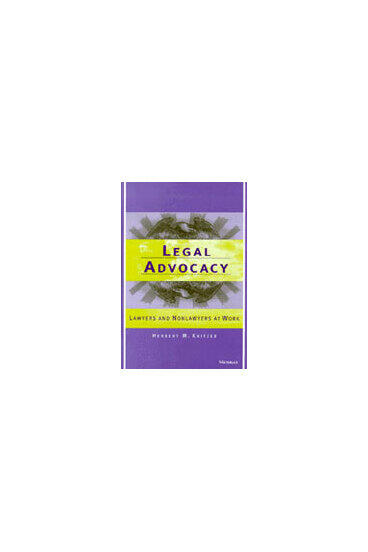Legal Advocacy
Lawyers and Nonlawyers at Work
Compares the performance of lawyers and non-lawyers as advocates in various legal proceedings
Description
Because of concern over the cost and quality of legal representation in this country many have argued that formally trained lawyers are not the best advocates in many situations. However, the professional bar has fought to maintain its monopoly on the provision of legal services. Can nonlawyers be effective legal advocates? Herbert Kritzer provides the first systematic comparative study of the work of lawyers and nonlawyers that evaluates the quality of representation provided by lawyers and nonlawyers. The book describes lawyers and nonlawyer advocates at work in four different legal settings: unemployment compensation claims appeals, Social Security disability appeals, state tax appeals, and labor grievance arbitrations.
The analysis shows clearly that nonlawyers can be effective advocates and, in some situations, more effective than many lawyers. Kritzer combines an examination of case outcomes with a systematic observation of advocates in the hearing room, providing a compelling portrait of their work and a solid basis for understanding the differences in the effectiveness of advocates with different training. The author's findings have important implications for our policies toward restrictions on those who can provide legal assistance, specialization in training and practice, and the meaning of professional monopolies in a world of increasing complexity.
This book will appeal to student of the legal process, the sociology of professions, and all concerned with the operation of the U.S. legal system.
Herbert M. Kritzer is Professor of Political Science and Law, University of Wisconsin--Madison. He is the author of Let's Make a Deal and The Justice Broker.
Herbert M. Kritzer is Professor of Political Science and Law, University of Wisconsin–Madison. He is the author of Let's Make a Deal and The Justice Broker.
News, Reviews, Interviews
Review Law and Politics Book Review | 7/1/1999

